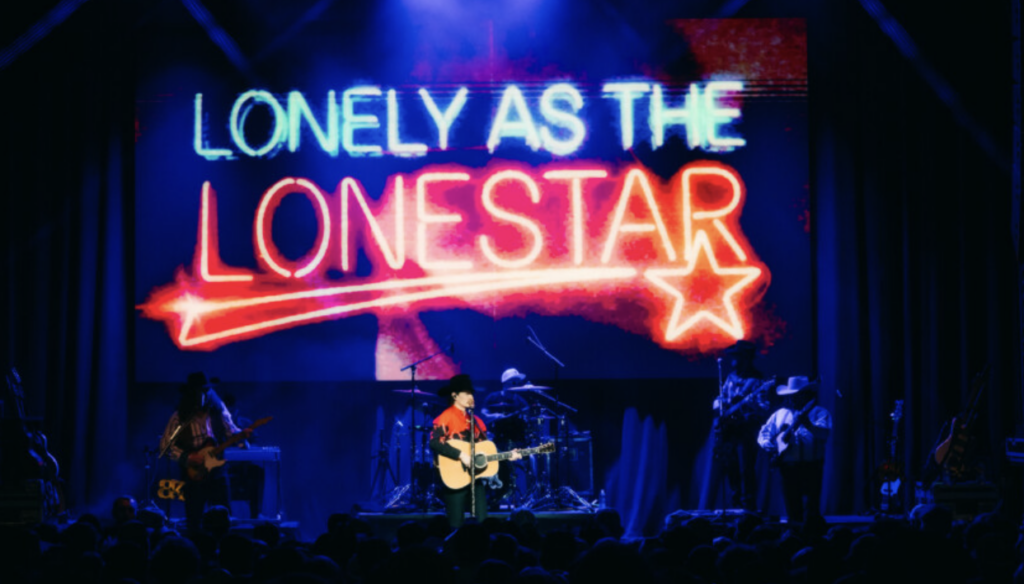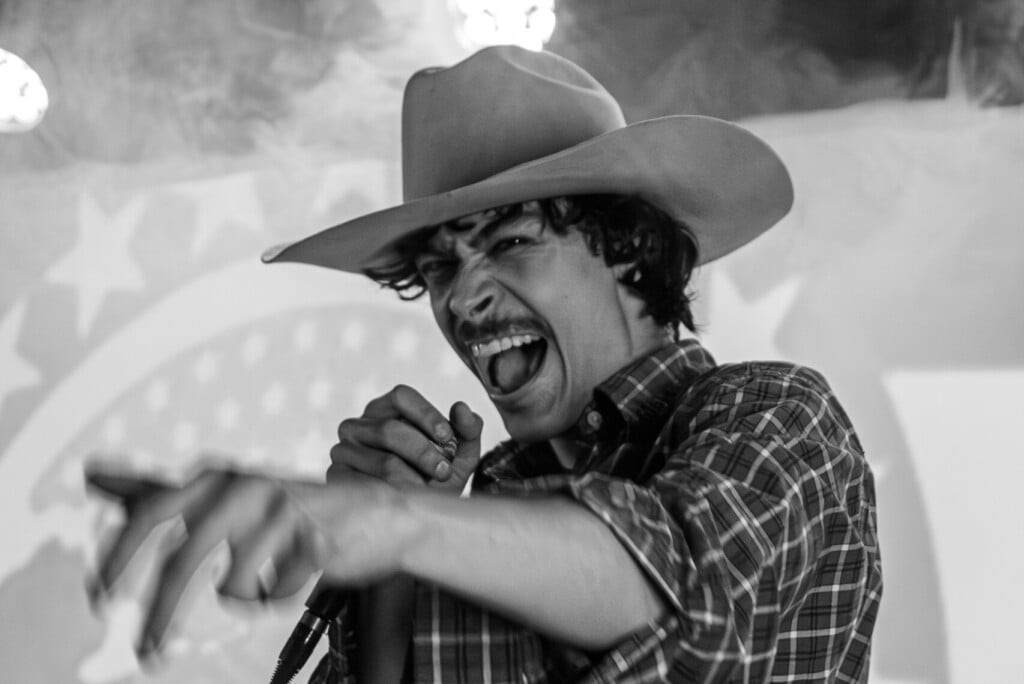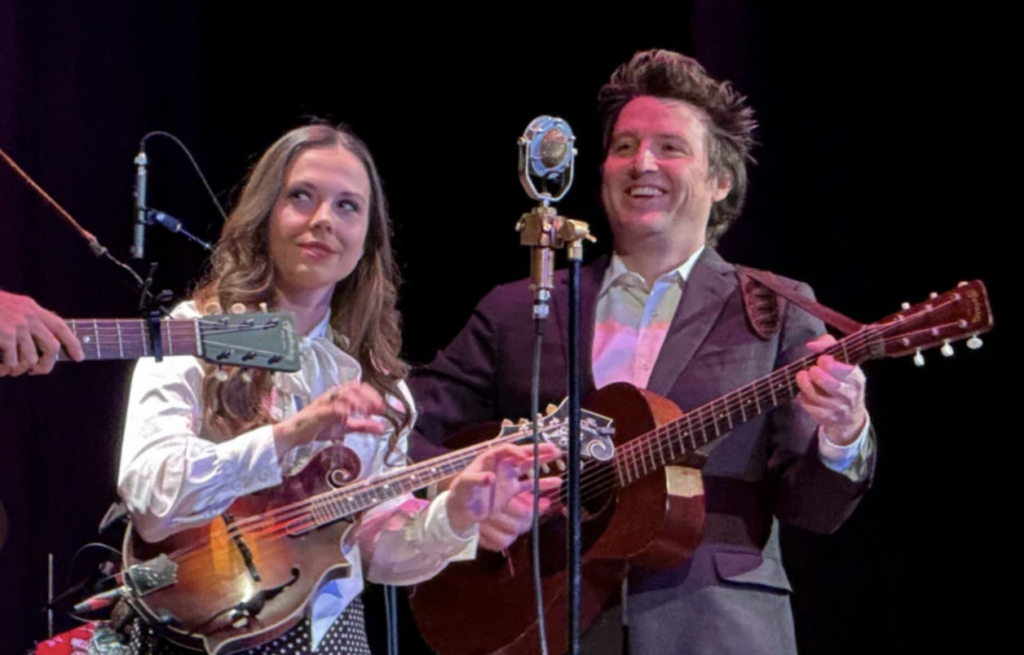Author Mick Wall on the ‘American poetry’ of The Eagles and his new biography Life in the Fast Lane
Writer Mick Wall has written books on Guns N’ Roses, Led Zeppelin, and Foo Fighters, to name but a few of the rock legends whom he’s gone deep into discussing. His latest might not be as hard-rocking as his usual subjects, but Life in the Fast Lane: The Eagles’ Reckless Ride Down the Rock & Roll Highway doesn’t lack for drama, drugs, and intensity despite the band’s usual peaceful easy feeling in their music. The biography of one of the biggest-selling groups in rock history is a riveting read, with the California setting perfect for anyone wanting to sit out by the pool.
Life in the Fast Lane is out this week from Diversion Books and ahead of its release, we hopped on Zoom with Mick Wall to discuss how it all came to be.
 The Pitch: One of the more interesting aspects of how Life in the Fast Lane was written is that you have access to all this stuff now that would’ve formerly required digging in archives accessible from your computer.
The Pitch: One of the more interesting aspects of how Life in the Fast Lane was written is that you have access to all this stuff now that would’ve formerly required digging in archives accessible from your computer.
Mick Wall: Yeah. I mean, I also do the old school digging in archives as well. My career predates the joy of going online and, and finding anything useful. I have a service that that gathers up magazines, periodicals. It doesn’t have everything, but it has all the main music titles from the ’70s. You’ve got NME, Melody Maker, Sounds, Record Mirror. You’ve also got the ones that only lasted in the ’70s, like Let It Rock, Street Life–which was like our Rolling Stone–and all the American ones. You have Rolling Stone, Creem, Phonograph, Hit Parade, Village Voice. I just gather up absolutely everything. Also online of course.
I also spend hours, days, months reading. You see everything that everybody else has done, and then you look at the DVDs. By the end of it, you’re half-crazed with this whole thing, but the book becomes just the very tip of this ridiculously huge iceberg of research and, of course, your own interviews.
The Eagles book had a very strange journey because it predates the pandemic. I’d always wanted to do something on the Eagles, but in the summer of 2018, it seemed like a good idea to finally try and push for this. They were going out on some Hotel California dates in 2019. They were definitely coming back to the UK in the summer of 2020. A good friend of mine, who’s one of the main guys at Live Nation in London, was telling me off the record all sorts of things were planned because you never know if they’re gonna come this way again.
They had a lot of plans and then of course we know what happened. But in 2019 it so happened that I was in Los Angeles a great deal working on two other books. It just afforded me an opportunity to meet a lot of people that had been in the business and in that whole Eagles orbit and L.A. orbit back when they were kicking ass and taking names.
I thought, “Wow, this is gonna be something really good,” and then the pandemic hit. Everything went to shit basically. And plans kept being updated: “Now they’re gonna come in the summer of ’21. Now they’re gonna come in the summer of ’22. No, they’re not gonna come. Yes, they are gonna come.”
By that time, it was too late to wait for that formal setting. I thought, “To hell with this, I’m just gonna make something with my bare hands that, as usual, constitutes all those avenues of investigation.”
I have a lifelong love affair with Los Angeles myself. The first time I got there was 1980. It didn’t overlap with the Eagles so much, but I did a lot of work with Fleetwood Mac. I did a lot of work with a lot of people in the business–Irving Azoff, Journey, all kinds of people–and I wanted to write a kind of a fever dream ode to good old L.A., but in a post-pandemic perspective. Once the ’80s comes along, the Eagles are gone, we have AIDS, we’ve kind of really lost our innocence. I thought, “That’s an interesting parallel. I’ll write about a lost world. This is a lost world.”
The opening to Life in the Fast Lane is entitled “Fast Forward” and is subtitled “Don Henley Does Not Like Books about The Eagles.” You have notably written two books about Guns ‘N Roses, the first of which got you mentioned in their song, “Get In the Ring.” Did that experience inform how you opened this book?
Do you know what? I hadn’t really thought of that. I’ve written three books Guns ‘N Roses related. I did the one you’re talking about that got me into trouble, although I think that was just an excuse. I think they just wanted to kick my ass. That one, The Most Dangerous Band in the World, which was just a collection of my interviews I did with them in Kerrang!–the same interviews they gave me a gold record and thanked me for.
The second book was a biography of Axl, which came out came out about 15 years ago and it was called War. The one I would point people to would be Last of the Giants, which was 2017. That is a much fairer, much deeper dive into the real story of not just Axl and Slash, but Guns ‘N Roses and again, a little bit of L.A., ’cause I was living in LA when they came along. I was already there before they got there.
But do you know what? No, I didn’t think of that at all. That very first Guns ‘N Roses book, I thought they would be completely delighted with because these are all interviews that had all already been published. They were the more verbatim interviews because, as you know, you interview someone for an hour, the actual quotes, you probably use about 15 minutes of it in the finished magazine piece, but never the lot.
They were always great to talk to. Funny as hell. We had some wonderful times. Axl I got on very well with. It was always fabulous. It was just a joy and so many things happened that I’ve never written about to this day, out of a personal courtesy because they were of a personal nature.
To be accused by Axl, postmortem, that I’d ripped off the kids? For a long time he said, I made that interview up and I still have the recording of the telephone conversation I had with him a couple weeks later when I was writing the piece and you can hear me say, “Axl, this just sounds really fucking heavy.”
“Read it to me.”
So I read it to him and you hear him laughing and I go, “Look, I know what you’re saying. There’s nothing wrong with what you’re saying. I’m just saying, are you sure you want me to go ahead with this?” and he says–and I quote–“Print it. I stand by every fucking word,” and then they printed it.
I was younger then. I mean, I was 31 when that happened, and I still believed in rock stars. I was so angry with him for being like that. I didn’t realize who he was back then. None of us did. It was just very, very unfortunate. When I got back to being an author in 2004, with my books on Zeppelin, Metallica, AC/DC, The Doors–the golden rule I set myself was I don’t give a fuck what any of the band think. There is only one person in the whole world that I write these books for and that’s the reader. If I’m honest with him or her, it doesn’t matter what else happens. I’m too old to give a shit if some rockstar takes my call.
They all still do, by the way.
This book is written both from the perspective of someone looking at it at a remove because you showed up right after it all happened, but you have spent a lot of time in the music industry, both as a journalist and managing bands and doing publicity for them. How did those two things work to create this book?
That’s a really good question. All those things worked towards it. All those things worked to all my books. This had a certain extra resonance for me personally and professionally for all the reasons you just said.
In the ’70s where no career was expected to last more than a couple albums, you couldn’t imagine that scale. Everybody is crazy. There are no rules. These are the first men in space. Everything is an experiment and it comes at that moment in the ’70s more so than any other time in American history where these privileged guys, mainly white, have the attention of the culture. Of everybody, even if they don’t know them.
Everybody knows an Eagles song. They might not know it’s them, but they know they’ve heard that song a million times. Back then, it led the culture. Music was all about truth to power. It hasn’t been that way like that since the ’70s. I’ve worked for decades with Led Zeppelin, Journey, REO Speedwagon, Black Sabbath, Dire Straits.
I know what it would’ve been like. I was with Def Leppard when they went from playing clubs to having their own private plane. I know what that journey is like and it’s far more banal than you imagine as a fan. [The Eagles] wrote some amazing stuff, but that didn’t mean they couldn’t be assholes or just these giant cocks. I mean, they were in their twenties. They were richer than the Stones.
Nothing like that had existed before and they didn’t come from L.A. They weren’t rock sophisticates. Glenn [Frey] just wanted to play Chuck Berry songs, and Don [Henley] had a better idea, but he wasn’t a singer yet. He was a drummer. All this stuff happened. It didn’t come together beautifully. It’s like a Frankenstein monster. It somehow happened and at the end of it, you’ve David Crosby and Gram Parsons and all these fucking guys in their cowboy hats looking down on the Eagles: “Oh, they’re not real. Oh, no. They took what we did and they commercialized it.”
Oh, you mean like Elvis did with the blues and, and country music? You mean like the Stones? Oh, you mean like dozens of songs Bob Dylan ripped off, particularly in his folky early days? It’s just how things happen. What’s that expression? They say, you can’t be a hero in your own land. In L.A. they were seen as “those fucking guys,” and “Ugh, ‘Take It Easy’? I don’t wanna hear that shit.” ‘Peaceful Easy Feeling’? Have you met that guy?” They just were hated.
The only people that loved them unequivocally were their fans and there’s only one person the rock star really hates hanging out with, and that’s his fans. You wanna talk to your peers, you wanna hang, and they got all of that once they were famous, like all rock stars do. Everybody wants to hang. Of course they do. You could be the biggest asshole in the world and everybody would want to hang. Ask Motley Crue.
But they made “Hotel California.” They made “One of These Nights.” I mean, fuck me, man. These guys were awesomely talented, but I think had that real inferiority complex. They never got the respect they deserved, so they treated people like shit because they felt they were always being treated like shit. That they were the bitch of the industry.
Do I think the Eagles are an interesting bunch of people and, and God bless ’em for it because they were perfect? No. Were they these scheming assholes that David Crosby still insisted on till the day he died? No. They were kids like, like we were once, desperate to get out a bum hole Nowheresville, and see what this Hollywood crap is all about, man.
Can you imagine? To them, from Texas, it must have looked like a bunch of pretty boys pissing around on their guitars, getting nowhere, all loving each other. Don’s like, “Let’s make some fucking money, man. What’s wrong with you? I don’t wanna live in the canyon. I want a throne in a castle overlooking a fucking mountain on a dark desert highway.”
To me it’s American poetry. It’s a true American story.
Mick Wall’s Life in the Fast Lane: The Eagles’ Reckless Ride Down the Rock & Roll Highway is out this week from Diversion Books.





